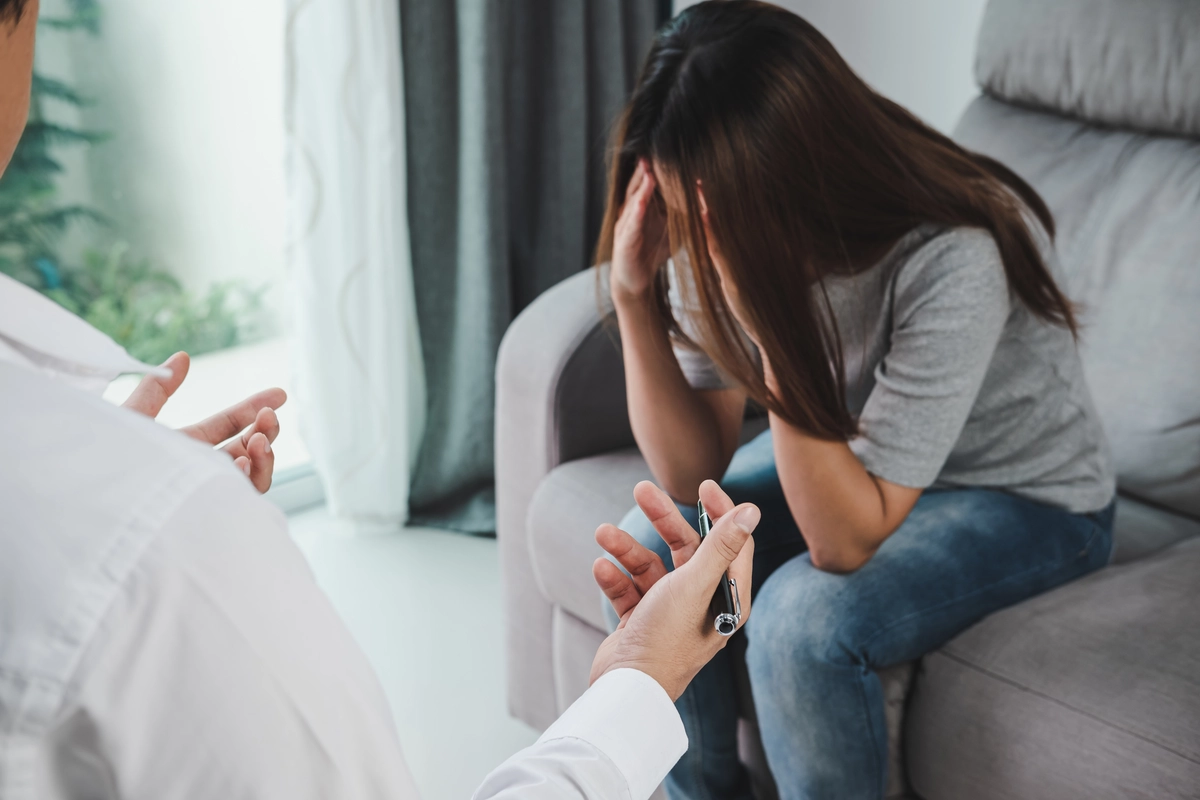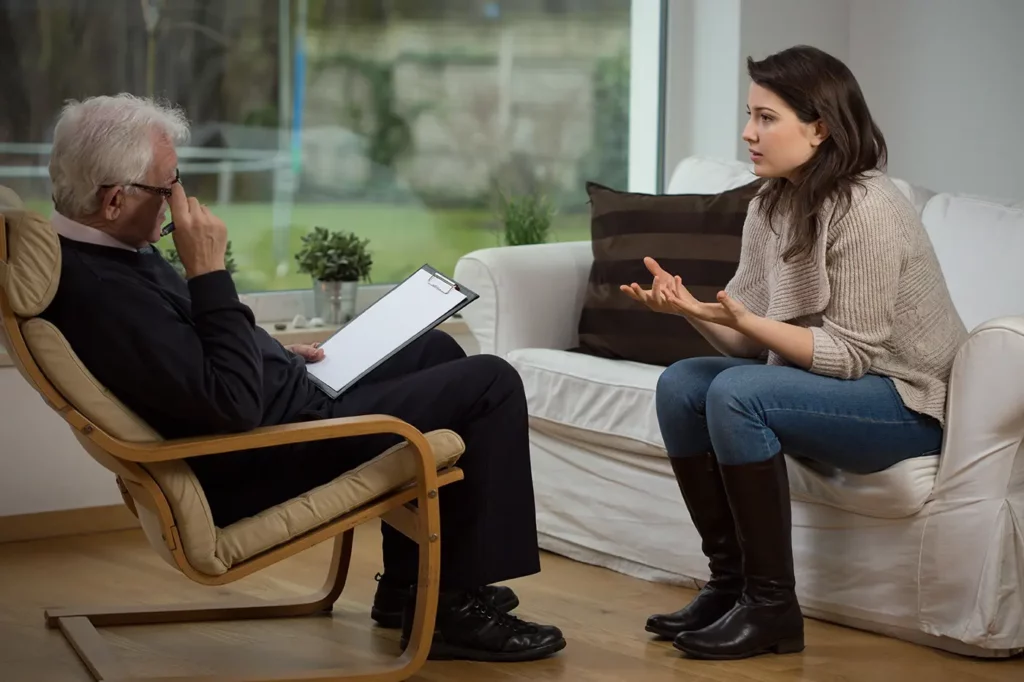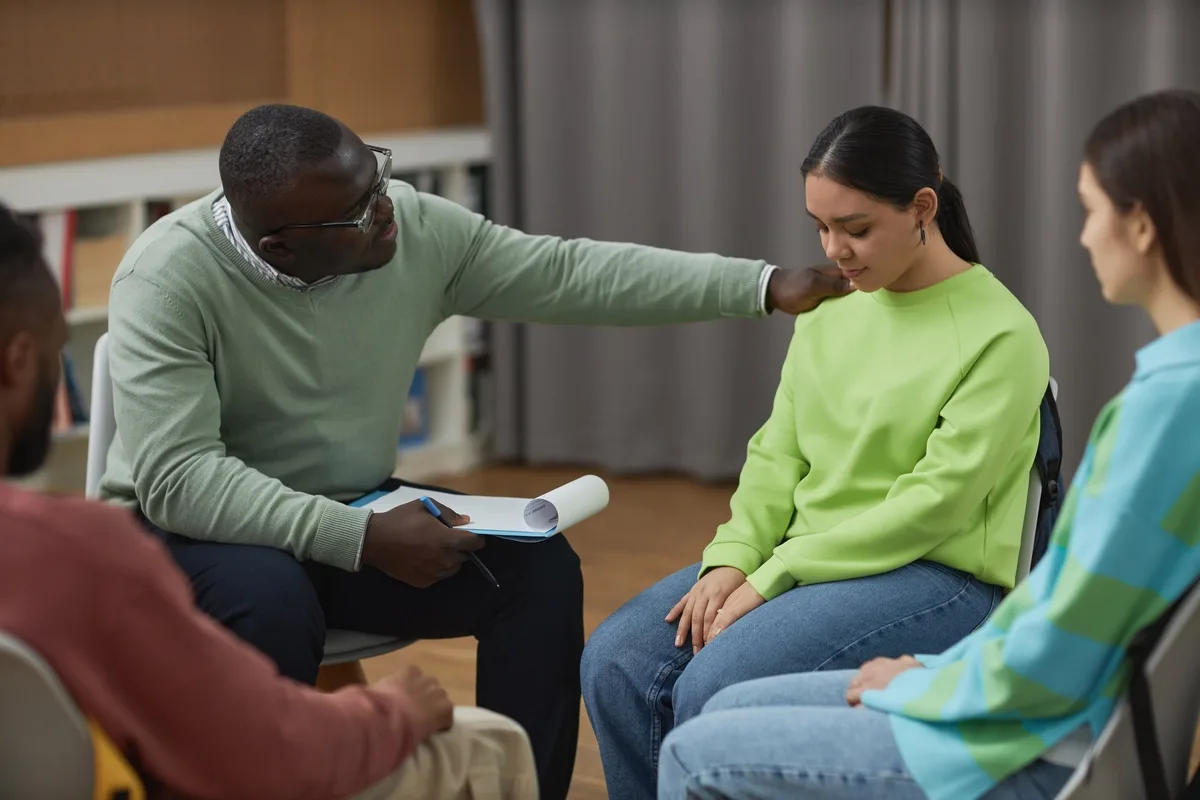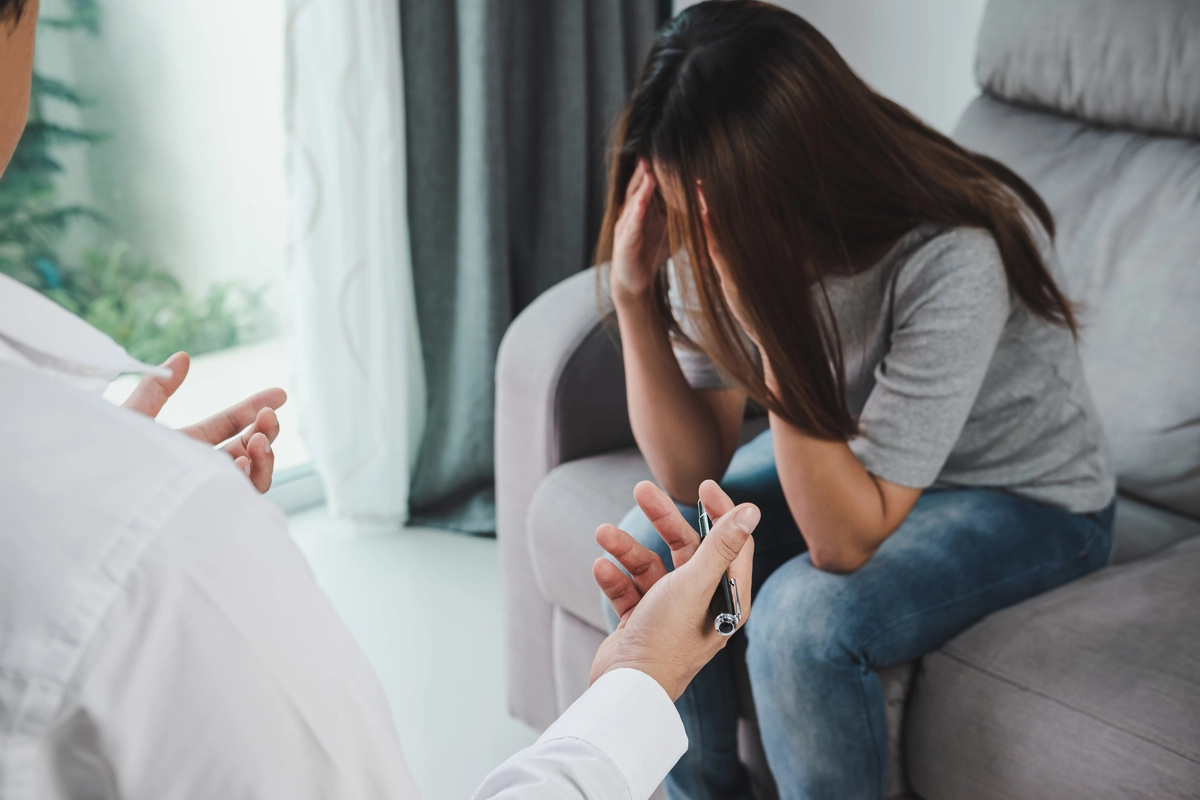24/7 Helpline:
(866) 899-221924/7 Helpline:
(866) 899-2219
Learn more about PTSD Rehab centers in Howard County

Other Insurance Options

Health Partners
Beacon

Magellan

Molina Healthcare

PHCS Network

United Health Care

Kaiser Permanente

Group Health Incorporated

Premera

Medical Mutual of Ohio

Regence

UnitedHealth Group

Multiplan

Access to Recovery (ATR) Voucher

BlueShield

Health Net

Cigna

EmblemHealth

WellPoint

Private insurance

The Gilead House
The Gilead House is a Non-Profit rehab center located in Indianapolis, IN. The Gilead House speciali...

Four County Counseling Center
4C Health Solutions is a dual diagnosis behavioral health treatment center located in Kokomo, IN. Wi...

First City Recovery Center
Freedom is within reach at First City Recovery Center. Based out of Kokomo, Indiana, FCRC offers a f...

Community Howard Behavioral Health Services
Community Howard Behavioral Health Services offers the complete realm of behavioral care to treat th...






























AA – Alcoholics Anonymous
AA – Alcoholics Anonymous is a private rehab located in Kokomo, Indiana. AA – Alcoholics Anonymous s...















